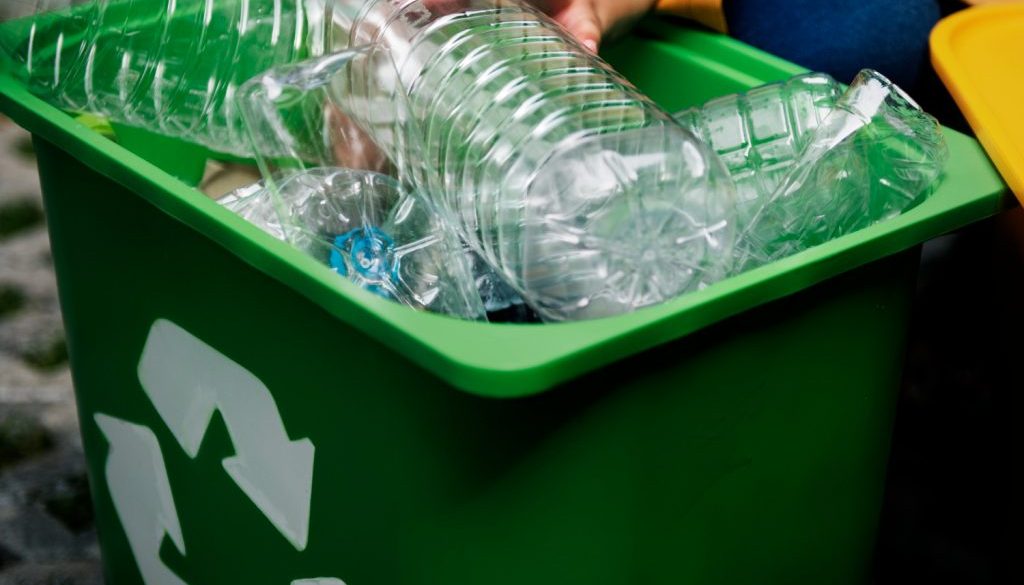Reducing the amount of rubbish is crucial for protecting the environment. Every piece of waste thrown away contributes to overflowing landfills and pollution. By making small changes in your daily habits, you can significantly reduce the amount of rubbish you generate. Simple steps like recycling more effectively, reusing items, and properly disposing of hazardous waste can make a big difference.
In this article, we’ll explore various tips to help you cut down on rubbish. From everyday habits that minimise waste to creative ways of reusing household items, there are many strategies to adopt. We will also cover the proper disposal of hazardous waste, which is vital for keeping the environment safe.
Reduce, Reuse, and Recycle: The Basics
Reducing waste starts with making thoughtful choices about what you buy and use. Opt for items with minimal packaging and avoid single-use plastics whenever possible. For example, bring your own bags to the grocery store and choose products in bulk. By buying only what you need, you can help cut down on waste right from the start.
Reusing items can extend their life and reduce the need for new products. Instead of throwing out old jars, use them for storage or as plant pots. Clothes that no longer fit can be donated or repurposed into cleaning rags. Reusable water bottles and coffee cups are other simple ways to cut down on waste.
Recycling involves turning waste into new products. Make sure to separate your waste correctly, following local guidelines for paper, plastics, glass, and metals. Many councils provide recycling boxes to make this easier. Remember to rinse containers and remove any labels before recycling. Proper recycling habits ensure materials are processed efficiently and kept out of landfills.
Everyday Habits to Minimise Waste
Adopting small changes in your daily routine can significantly reduce the amount of waste you produce. Start by being mindful of what you throw away. Simple actions like composting organic waste and avoiding disposable items can make a big difference.
Another effective habit is to carry reusable items with you. Keep a shopping bag, coffee cup, and water bottle in your bag or car. These small items can save hundreds of single-use products each year. Packing your lunch in reusable containers instead of plastic bags is another easy way to minimise waste.
When shopping, look for products with less packaging. Choose items that come in recyclable containers, or bring your own bags for loose produce. Buying in bulk can also reduce the amount of packaging waste. Lastly, always check if broken items can be repaired before deciding to replace them.
Creative Ways to Reuse Household Items
Finding creative ways to reuse household items can significantly reduce waste. Before discarding something, think about how it can be repurposed. For instance, old clothes can be transformed into cleaning rags or upcycled into new fashion items with a bit of creativity and sewing skills. Glass jars and bottles can be reused as storage containers for pantry items, craft supplies or even turned into decorative vases.
Children’s toys and arts and crafts materials often come from reused items. Empty toilet paper rolls can become the body of a rocket or a binocular set for a fun project. Cardboard boxes can be turned into playhouses, cars, or forts. These activities not only reduce waste but also provide engaging activities for kids.
Furniture and home decor can also benefit from a touch of creativity. Wooden pallets can be converted into garden furniture, and old tyres can become planters or swings. The possibilities are endless with a bit of imagination. Reusing items around the house saves money and reduces the demand for new products, which ultimately helps the environment.
How to Properly Dispose of Hazardous Waste
Proper disposal of hazardous waste is crucial for protecting both the environment and human health. Hazardous waste includes items like batteries, paint, chemicals, and certain electronics. These items should never be thrown into regular rubbish bins because they can leak harmful substances into the soil and water.
First, identify if the item is considered hazardous. Most products have warning labels indicating if they contain hazardous materials. Once identified, look for local collection points or recycling centres that accept these materials. Many recycling centres have designated drop-off points for hazardous waste.
Certain items like batteries and electronics often have specific disposal programmes. Retailers might offer take-back schemes where you can return old electronics for proper recycling. Pharmaceuticals and expired medicines should be returned to a pharmacy for safe disposal.
Conclusion
Cutting down on rubbish is not just about reducing waste; it’s about making conscious choices that benefit the environment and communities. By understanding the basics of reducing, reusing, and recycling, adopting everyday habits to minimise waste, and getting creative with repurposing household items, you can make a significant impact. Proper disposal of hazardous waste ensures you protect the environment from harmful substances.
Join us in making a positive change. If you need assistance with waste disposal for your project, consider Enviro Skip Hire. Our family-run business is committed to helping residents manage their waste responsibly. Get in touch with us today to find the right skip hire in Chester for your needs.




